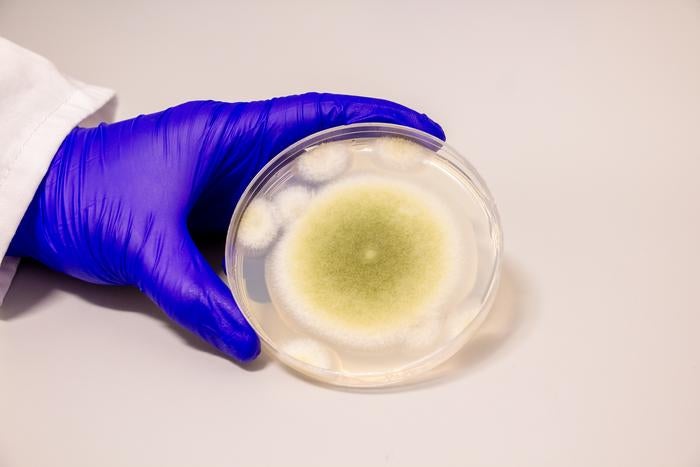Researchers believe that a fungus thought to be found in ancient tombs may provide a valuable new tool in the fight against cancer.
The fungus Aspergillus flavus, sometimes dubbed the “mummy’s curse” for its potential link to the deaths of archaeologists who excavated famous tombs like that of King Tutankhamen in Egypt, shows promise in stopping cancers such as leukemia, according to a new study published Monday in Nature Chemical Biology from a team of scientists led by the University of Pennsylvania.
“Fungi gave us penicillin,” Sherry Gao, associate professor in chemical and biomolecular engineering and bioengineering at Penn, a senior author on the study, said in a statement. “These results show that many more medicines derived from natural products remain to be found.”
Over the course of their research, the scientists isolated and purified a new class of molecules derived from the fungus, asperigimycins, and tested them against common cancers in breast, liver, and lung cells.
Even with no modification, two of the four asperigimycins in the experiment had “potent” effects against leukemia cells, according to the university.
Another variation, to which scientists added a fatty lipid molecule, performed as well as the longstanding Food and Drug Administration-approved leukemia drugs cytarabine and daunorubicin, the university added.
Researchers believe these molecules, created inside the fungus’s cellular machinery then modified by the study’s authors, block some of the mechanisms of cell division, halting the unchecked cell growth that causes cancer.
“Cancer cells divide uncontrollably,” Gao added in the statement. “These compounds block the formation of microtubules, which are essential for cell division.”
Aspergillus flavus, which is commonly found in soil, can lead to lung infections in humans, especially among those with compromised immune systems, and infects a variety of agricultural crops.

As a result, it is one of the most frequently isolated mold species in agriculture and medicine, according to Popular Science.
The Penn team, which also included researchers from Rice University, the University of Pittsburg, the University of Texas, Washington University of St. Louis, Baylor College of Medicine, and the University of Porto, said its research was unique because it focused on a class of peptides more commonly studied in bacteria, rather than fungus.
The research, which scientists hope to continue in animal models and potential human trials down the road, was funded by the National Institutes of Health, the biomedical research hub from which the Trump administration hopes to cut $18 billion in funding.
Judge deems some of Trump’s National Institutes of Health grant cuts illegal
Pregnant mothers’ high blood pressure linked to this increased risk in children
DOGE cuts to the IRS will cost $500 billion in lost revenue, watchdog finds
Support for solar energy and offshore wind falls among Democrats and independents, AP-NORC poll says
New CDC advisers will skip some expected topics and explore a target of antivaccine activists






